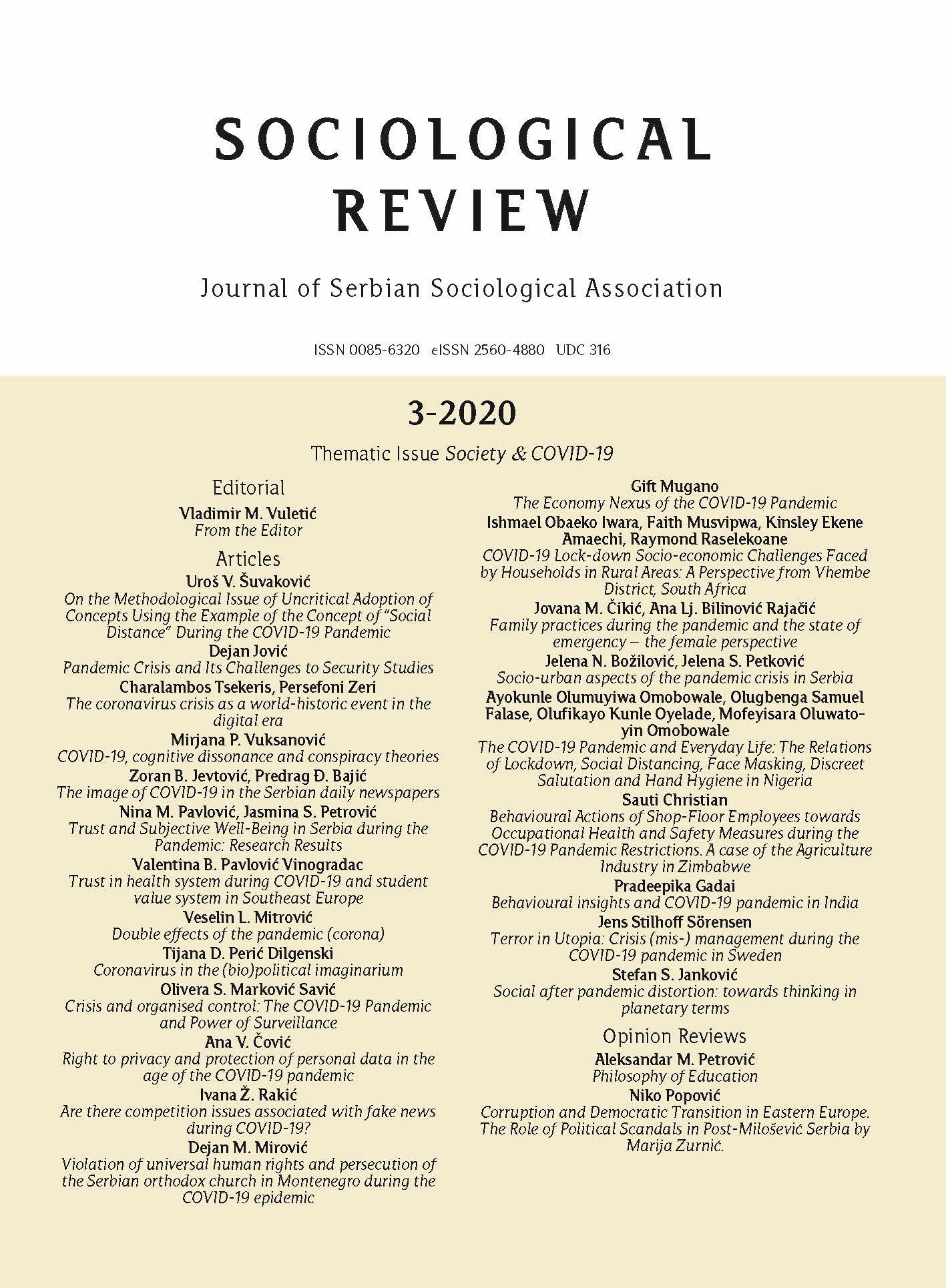Behavioural insights and COVID-19 pandemic in India
Behavioural insights and COVID-19 pandemic in India
Author(s): Pradeepika GadaiSubject(s): Social Sciences, Psychology, Sociology, Behaviorism, Social development, Health and medicine and law, Social Norms / Social Control, Globalization
Published by: Српско социолошко друштво
Keywords: COVID-19;pandemic risk;self-isolation;protection motivation theory (PMT);theory of planned behaviour (TBP) and behavioural responses;
Summary/Abstract: The emergence of the novel COVID-19 has made pandemic preparedness a crucial issue for public health worldwide. A little is known about people behaviour in a pandemic situation. Such knowledge is however critical. Understanding the associated psychological and behavioural responses is vital for future intervention development. During the period of Lockdown Stage , from 25th March to 14th April 2020 in India, a survey was conducted among 700 people in Delhi NCR and Haryana state, to explore changes in their psychological and behavioural responses to the COVID-19 virus epidemic based on Protection Motivation Theory (PMT) which distinguishes two phases, namely a threat appraisal and a coping appraisal is applied . Further infected people should be isolated to minimize the spread of pandemic diseases. Therefore, the factors related to self-isolation (SI) should not be neglected, and it is important to investigate the factors leading the infected (or possibly infected) people to choose to self-isolate. For this purpose, the theory of planned behaviour (TPB) is used for providing conceptual framework for SI when facing a pandemic risk and a regression method is applied to investigate how attitude (ATT), subjective norms (SN), and perceived behavioural control (PBC) influence SI when facing a pandemic emergency. The results of this study provide relevant information that promotes theoretical understanding of psychological and behavioural intentions of people and enables us to shape future intervention development.
Journal: Социолошки преглед
- Issue Year: 54/2020
- Issue No: 3
- Page Range: 920 - 960
- Page Count: 41
- Language: English, Serbian

